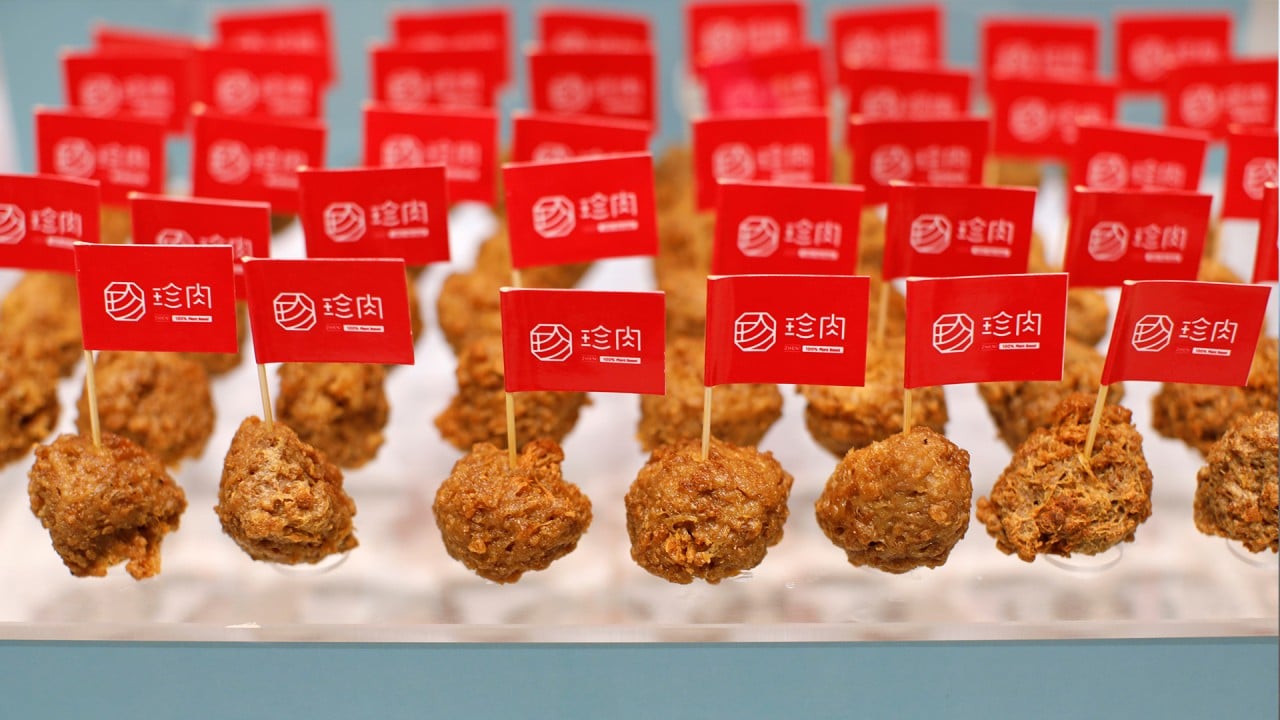
Beyond Meat opens JD.com store in e-commerce push to entice meat substitute-averse Chinese consumers
- Beyond Meat is moving into retail with JD.com in China, where its products have mostly been available through Starbucks, Yum China and Alibaba’s Freshippo
- As companies increasingly invest in plant-based meats in China, consumers remain wary over food safety and taste
US-based Beyond Meat said in a statement the JD.com store will initially help expand availability of its products in four major cities, including Beijing and Shanghai, and eventually in 300 cities across China.
JD.com’s 18 cold chain warehouses will provide delivery of Beyond Meat products to consumers within 48 hours of orders being placed, it said.
The millennial entrepreneur creating China’s answer to Beyond Meat
But expanding into the retail segment by selling on JD.com will help it reach a wider audience in the country, which is increasingly purchasing fresh food online.
Online sales in China of fresh food, into which category Beyond Meat’s products fall, are expected to top 300 billion yuan (US$46.40 billion) this year, an increase of 18 per cent from 2020, according to consultancy iiMedia Research.
Beyond Meat’s direct retail foray follows a similar move by Nestle in December, which launched a range of plant-based burgers, sausages, nuggets and dishes suited to Chinese cooking.
“Currently, it is a solo dance by the manufacturers, the consumers are not joining the tango,” said Zhu Danpeng, an independent food industry analyst.

03:09
Chinese start-up launches plant-based meat as coronavirus fuels healthy eating trend
Chinese consumers are deterred by concerns over food safety as well as taste, said Zhu.
A recent poll on the Sina Weibo social media platform found only 14 per cent of 400 participants were willing to try plant-based meat.
Nevertheless, the promise of a market with 1.4 billion people is enticing for the companies.
Beyond Meat, which has set up its first manufacturing plant outside of the United States in the eastern Chinese city of Jiaxing, near Shanghai, declined to comment on its sales in the market.
A 0.454kg twin pack of plant-based beef will be sold at 210 yuan on the company’s JD store. By comparison, 1kg of good quality domestic beef costs about 140 yuan on JD’s fresh food platform.
China’s food tech sector shows promise as consumers seek alternative diets
“We see that Chinese consumers pay more and more attention to healthy diet and lifestyle,” James Ye, general manager of JD Fresh said. “Via our long-established advantages in supply chain, cold chain logistics, retail and omni-channels, we hope to bring Beyond Meat’s healthy and high-quality products to Chinese consumers.”
Liu Yiping, a 45-year-old businessman in Beijing, said he likes the sandwich with Beyond Meat at Starbucks.
“I tried it for fun as I wonder how the taste will be,” he said. “It is not bad but still won’t make me try the second time as it is not cheap.”
Beyond Meat is also adding Beyond Pork, created for the pork-loving Chinese market, to its offering on JD.com.
It will also sell ingredients that are used in the cooking of local dishes such as stir-fry, dumplings, mapo tofu, zhajiang noodles and lion’s head meatballs to appeal to Chinese consumers.

